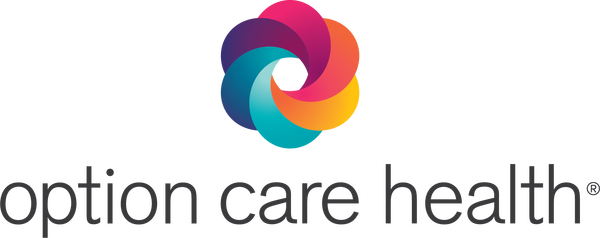
Option Care Study: Home Nutrition Patients Managed By Dietitians More Likely to Receive Guideline-Compliant Therapy
By: Option Care
January 17, 2016
 AUSTIN, Texas, Jan. 17, 2016 — Patients are more likely to receive the appropriate type of home nutrition therapy when their care includes management by registered dietitians, suggests a study being presented at the American Society for Parenteral and Enteral Nutrition (A.S.P.E.N.) Clinical Nutrition Week meeting today in Austin.
AUSTIN, Texas, Jan. 17, 2016 — Patients are more likely to receive the appropriate type of home nutrition therapy when their care includes management by registered dietitians, suggests a study being presented at the American Society for Parenteral and Enteral Nutrition (A.S.P.E.N.) Clinical Nutrition Week meeting today in Austin.
Nutrition therapy patients receiving home parenteral (intravenous) nutrition (HPN) were transitioned to home enteral (through a feeding tube) nutrition (HEN) or to an oral diet sooner due to the registered dietitians’ expertise and adherence to A.S.P.E.N. guidelines, researchers found. Patients with a variety of health conditions require nutrition support: the guidelines generally recommend HPN for patients whose gastrointestinal (G.I.) systems aren’t functioning, and HEN for those whose G.I. systems are functioning, but who may have other problems that interfere with eating, such as the inability to swallow. HEN is preferable whenever possible because it is more similar to how the body naturally receives nutrition.
Patients prescribed HPN should transition to HEN or an oral diet as soon as their G.I. systems are functioning, the guidelines note. HPN not only costs more, but the risk of infection is significantly higher compared to HEN. Nutrition order writing can be managed by a physician, registered dietitian or be a collaboration of the two. As the percentage of patients whose care was managed by registered dietitians increased during the five-year study, the average number of days patients received HPN decreased, suggesting patients transitioned off HPN earlier, as guidelines recommend, researchers found.
“Clearly, home nutrition patients benefit from care provided by a dietitian-led nutrition support team,” said Kelly Kinnare, MS, RD, LDN, CNSC, nutrition services manager for Option Care. “Physicians are busy and recognize the expertise dietitians provide and therefore increasingly are putting the nutrition order writing and weaning recommendations in our hands. “
The study included 505 patients who were started on HPN between Jan. 1, 2010 and Dec. 31, 2014. During that time period, the percentage of patients whose care was managed by a registered dietitian increased 18 percent (from 75 percent to 91 percent) and the average number of days a patient received HPN decreased by 33 percent (from 128.7 days to 86.5 days).
“HPN is more invasive, presents with serious complications, and is significantly more expensive than HEN therefore should only be utilized when appropriate,” said Noreen Luszcz, RD, MBA, CNSC, nutrition program director for Option Care. “While HEN costs about $500 a month per patient, HPN is 10 times as expensive, costing about $5,000 a month. “
In this study the average length of HPN therapy decreased by 42 days per patient with increased dietitian management. Every patient on HPN 42 less days equates to a $7000 in healthcare savings which does not include the savings from the elimination of potential line infections and other complications associated with HPN.
Option Care’s Nutrition Support Program follows a multidisciplinary team approach to care including infusion nurses, pharmacists and dietitians certified in nutrition support who work closely with physicians to provide quality care to HPN and HEN patients. The program includes a registered dietitian at every one of its 92 infusion pharmacies.
Patients are prescribed HPN or HEN because they cannot meet their nutrition needs orally due to conditions such as cancer, stroke, gastrointestinal disease or surgical complications. Both therapies can be temporarily administered in the hospital, however about 40,000 HPN patients and 344,000 HEN patients annually receive their nutrition therapy safely and with less cost at home avoiding the risk of exposure to hospital-acquired infections, returning to work and living active lives. Although some people receive these therapies short term many are on for a longer period and some lifelong.
About Option Care
Option Care Enterprises, Inc., offers clinical care provided by specially trained infusion nurses, pharmacists and dietitians who treat patients with a wide range of acute, chronic and rare conditions. As one of the nation’s largest providers of home and alternate treatment site infusion services, Option Care has 92 infusion pharmacies and 110 alternate treatment sites across the country. Learn more at www.OptionCare.com.
# # #
Media Contact Information
Option Care
Lauren Kotarski
312-558-1770
LKotarski@pcipr.com


